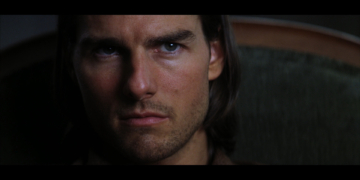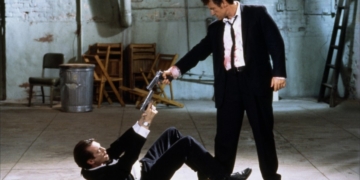Warning – Contains Spoilers
“Box Cutter”, the first episode of the forth season of Breaking Bad (that show you may have heard of), is one of the acclaimed series’ most pivotal episodes.
Set in the aftermath of lab assistant Gale’s death, orchestrated by Walter in order to protect his and Jesse’s lives from drug barren Gustavo, the show’s three main protagonists are each developed in a fascinatingly twisted way.
Perhaps most strikingly, we are presented with that unforgettable and painfully long sequence in which Gus, devoid of any emotion, cuts Victor’s throat with a box cutter in front of Walt and Jesse, removing the enigma surrounding the episode’s namesake in one swift glide.
For better or for worse, the sequence fully realizes the grim reality of the drug trade that Walt and Jesse have been gradually learning throughout the show’s previous three seasons.
Gus shows that he is not connected to humanity in any emotional sense. To him, humans are simply parts with individual tasks that together form a whole, his meth empire.
In this ‘monsterisation’, if you like, Walt and Jesse are confronted by the complete dispensability of their lives. They learn that, while they are more integral to the machine than Victor, they are nonetheless parts who can, and most definitely will, be replaced.
The episode’s power comes from the movement of Walt’s private conflict with Gus into the public, by way of his realization that for him to overcome the inhumane he must himself become inhuman (a fact which subsequently becomes reality thorough the increasingly heinous acts littering the rest of the show’s episodes).
While Breaking Bad’s use of music is not often listed amongst its (seemingly endless) positive points, one cannot ignore the subtle way in which ‘Truth’ by Alexander manages to be simultaneously reflective and ironic as it plays over the episode’s finale.
In the sequence, Walt claims he is “as right as rain”, and, in this sense, the song symbolically represents the genuine truth of this statement given the aforementioned events of the episode.
To elaborate, Walt has become a figure so desensitized to violence he has lost his sense of morality to the point where witnessing an innocent death fails to affect him on an emotional level at all; he is truthfully OK.
He has become the archetypal cowboy, and the song’s lyrical themes and cheerfully whistled refrain are reflective of a man who has seen everything.
On the other hand, the ironic use of a song that repeatedly barks ‘truth’ over images of Walt lying to his wife and the police is also particularly poignant.
As we see Walt reassure his wife that everything is fine while police examine the site of Gale’s death, the episode leaves us with a stark reminder of the contrast between Walt’s existence in the eyes of his family as a mild-mannered chemistry teacher and his true existence as a vitriolic man who will do anything to preserve his own existence.








